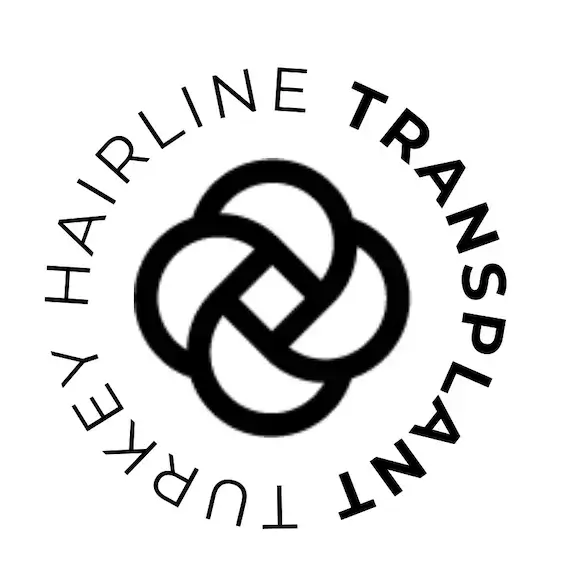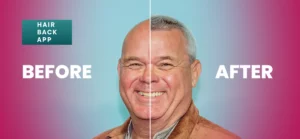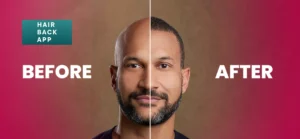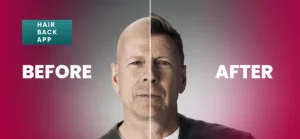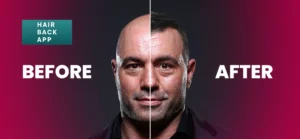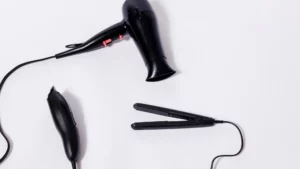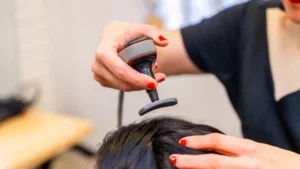After hair transplant care products are essential for ensuring the best possible outcome following a hair transplant surgery. Hair transplant surgery is a popular solution for individuals experiencing hair loss or thinning.
Hair transplant surgery procedure involves transferring hair follicles from a donor area, usually the back or sides of the head, to the balding or thinning areas. This surgery aims to restore a fuller, more natural-looking head of hair, boosting the patient’s confidence and overall appearance.
It begins with a thorough consultation, where the surgeon evaluates the patient’s hair loss pattern, type of hairloss, scalp condition, and overall health. Based on this assessment, a personalized treatment plan is developed.
The surgery itself can be performed using different techniques, such as Follicular Unit Extraction (FUE) or Follicular Unit Transplantation (FUT). FUE involves extracting individual hair follicles and implanting them into the recipient area, while FUT involves removing a strip of scalp from the donor area, which is then divided into individual grafts. Both methods aim to achieve natural-looking results with minimal scarring.
Post-surgery care is critical to the success of the hair transplant. Patients must follow specific guidelines to ensure proper healing and to maximize the growth of the transplanted hair.
This is where after-hair transplant care products play a crucial role. These products help in maintaining scalp hygiene, reducing inflammation, and promoting hair growth. Proper aftercare not only ensures the survival of the transplanted follicles but also enhances the overall outcome of the procedure.

Importance of Proper Aftercare for Successful Results
-
Prevents Infection
After-hair transplant care products help prevent infections. Using antibiotic creams and keeping the scalp clean reduces the risk of complications. A healthy scalp environment is crucial for the transplanted hair to take root and grow properly.
-
Reduces Inflammation and Discomfort
Proper aftercare includes using anti-inflammatory medications and gentle care products. This helps manage swelling and pain, making the recovery process more comfortable. Keeping inflammation under control ensures better healing and supports hair growth.
-
Promotes Hair Growth
Specialized shampoos, conditioners, and hair growth serums are vital after a hair transplant. These products provide essential nutrients and stimulate hair follicles. Consistent use helps the new hair grow stronger and healthier, leading to better overall results.
-
Maintains Scalp Health
Using appropriate aftercare products maintains scalp hygiene and health. Avoiding harsh chemicals and opting for gentle cleansers prevents irritation. A healthy scalp is the foundation for robust hair growth and long-lasting results.
-
Enhances Overall Appearance
The right aftercare routine ensures the transplanted hair blends seamlessly with the existing hair. Using products like silk pillowcases can prevent friction and hair damage. This helps achieve a natural look and boosts confidence in the final appearance.
Top After-Hair Transplant Care Products
Choosing the right after-hair transplant care products is essential for a smooth recovery and optimal results. These products help protect your scalp, promote healing, and encourage healthy hair growth.
Moving forward, we will explore some of the best products you should consider incorporating into your aftercare routine.
Mild Shampoos and Conditioners
Gentle hair cleansers are vital after a hair transplant to protect the sensitive scalp and newly transplanted hair. Harsh shampoos can irritate the scalp, cause inflammation, and hinder the healing process.
Using a mild shampoo ensures the scalp remains clean without stripping away natural oils, which are essential for maintaining scalp health.
Importance of Gentle Hair Cleansers
- Reduces Irritation: Mild shampoos and conditioners are less likely to cause irritation to the sensitive scalp post-transplant. Harsh chemicals can aggravate the scalp and hinder the healing process.
- Prevents Dryness: Gentle cleansers help maintain the natural moisture balance of the scalp. Keeping the scalp hydrated is essential for the new hair follicles to grow strong and healthy.
- Promotes Healing: Using mild products supports the healing process by avoiding harsh ingredients that can damage the delicate transplant area. A calm, clean scalp environment is crucial for optimal recovery.
Antibiotic Creams and Ointments
Antibiotic creams and ointments play a vital role in preventing infections after hair transplant surgery. They help protect the newly transplanted hair follicles and the surrounding scalp from harmful bacteria.
Keeping the area free from infection is essential for proper healing and the success of the transplant.
How to Apply the Creams and Ointments After Hair Transplant Surgery
- Clean the Area: Gently clean the scalp with a mild, recommended shampoo to remove any dirt or residue.
- Dry the Scalp: Pat the scalp dry with a clean, soft towel. Avoid rubbing to prevent irritation.
- Apply a Small Amount: Use a small amount of antibiotic cream or ointment on a clean fingertip.
- Spread Evenly: Gently apply the cream or ointment to the transplanted area, spreading it evenly without rubbing it in.
- Repeat as Directed: Follow the instructions provided by your healthcare provider, usually applying the cream 2-3 times daily.
Importance of Antibiotic Creams and Ointments After Transplant Surgery
- Prevents Infection: These products create a barrier that protects the scalp from bacteria, reducing the risk of infection.
- Promotes Healing: By preventing infection, antibiotic creams and ointments support the body’s natural healing process.
- Reduces Inflammation: Some antibiotic ointments have anti-inflammatory properties that help reduce swelling and discomfort, aiding in a smoother recovery.
Hair Growth Serums and Oils
Hair growth serums and oils are essential for enhancing the results of a hair transplant. These products contain ingredients that nourish the hair follicles and stimulate new growth.
Regular use of growth serums and oils can lead to stronger, thicker, and healthier hair, ensuring that the transplanted hair blends seamlessly with your natural hair.
How to Apply Growth Serums and Oil After Hair Transplant Surgery
- Clean the Scalp: Begin by gently washing your scalp with a mild shampoo to ensure it’s clean and free of any residue.
- Dry the Scalp: Pat your scalp dry with a soft towel, avoiding any rubbing that could irritate the transplanted area.
- Dispense the Product: Apply a few drops of the growth serum or oil to your fingertips.
- Apply Evenly: Gently massage the serum or oil into the scalp, focusing on the transplanted area. Use light, circular motions to ensure even distribution.
- Follow Instructions: Apply the product as directed, usually once or twice daily, to maintain consistent nourishment and stimulation of hair follicles.
Importance of Growth Serums and Oils After Hair Transplant Surgery
- Nourishes Hair Follicles: Growth serums and oils contain essential nutrients and vitamins that nourish the hair follicles, providing them with the necessary elements to grow stronger and healthier hair.
- Stimulates Hair Growth: These products often include ingredients that stimulate blood circulation to the scalp, promoting faster and thicker hair growth in the transplanted area.
- Strengthens Hair Strands: Regular use of growth serums and oils helps in strengthening the hair strands, reducing breakage and ensuring that the new hair is robust and resilient.
- Reduces Dryness and Itchiness: These products keep the scalp moisturized, preventing dryness and itchiness, which can be common issues after a hair transplant surgery.
- Enhances Overall Hair Health: By providing comprehensive care and nourishment, growth serums and oils improve the overall health of both transplanted and existing hair, leading to a more natural and aesthetically pleasing result.
Anti-inflammatory Medications
After hair transplant surgery, swelling after hair transplant surgery and discomfort are common issues that can hinder the recovery process. Anti-inflammatory medications are crucial in managing these symptoms, helping to reduce inflammation and pain.
By minimizing swelling and any indication of folliculitis, these medications promote faster healing and ensure the transplanted hair follicles remain undisturbed.
Importance of Anti-inflammatory Medications After Hair Transplant Surgery
- Reduces Swelling
Anti-inflammatory medications help reduce swelling around the transplanted area. This is important because excessive swelling can put pressure on the new hair follicles, potentially affecting their growth.
By keeping the swelling under control, these medications support a smoother and faster recovery process.
- Minimizes Pain and Discomfort
Pain and discomfort are common after hair transplant surgery, but anti-inflammatory medications can help manage these symptoms effectively. By alleviating pain, these medications make the recovery period more comfortable.
This allows patients to focus on proper aftercare and ensures they can follow post-operative instructions without distress.
- Promotes Healing
Managing inflammation is crucial for promoting the healing process. Inflammation can hinder the body’s ability to repair and regenerate tissues. By reducing inflammation, anti-inflammatory medications help the body heal more efficiently, ensuring that the transplanted hair follicles establish themselves properly. - Prevents Complications
Inflammation can lead to various complications, including infection and scarring. By controlling inflammation, these medications reduce the risk of such issues.
This contributes to a better overall outcome and helps maintain the health of both the transplanted and existing hair.
- Enhances Overall Results
Effective management of swelling and pain leads to better overall results from the hair transplant surgery. Patients are more likely to adhere to aftercare routines when they are comfortable and pain-free.
This enhances the final appearance of the hair, ensuring a natural and successful outcome.
Vitamins and Minerals That Support Hair Growth
Proper nutrition is crucial for hair health, especially after a hair transplant. Certain vitamins and minerals can significantly support hair growth and strengthen hair follicles. Key nutrients include biotin, vitamin D, vitamin E, zinc, and iron.
These vitamins and minerals help promote cell regeneration, improve blood circulation to the scalp, and provide the essential building blocks for healthy hair growth.
Recommended Supplements and Dosages
- Biotin (Vitamin B7)
Biotin is known for strengthening hair and nails. It helps produce keratin, a key protein in hair structure, leading to stronger and healthier hair. Recommended Dosage – 2,500-5,000 mcg daily
- Vitamin D
Vitamin D supports the creation of new hair follicles and reduces hair loss. Adequate levels can improve hair density and overall hair health. Recommended Dosage – 600-2,000 IU daily
- Vitamin E
Vitamin E is an antioxidant that repairs and builds tissue. It helps reduce oxidative stress on the scalp, promoting a healthy environment for hair growth. Recommended Dosage – 15 mg daily
- Zinc
Zinc plays a crucial role in hair tissue growth and repair. It helps keep the oil glands around hair follicles working properly, preventing hair thinning and loss. Recommended Dosage – 11 mg daily for men, 8 mg daily for women
- Iron
Iron improves blood flow to the scalp, ensuring that hair follicles receive the oxygen and nutrients they need for healthy growth. Iron deficiency can lead to hair loss, so maintaining adequate levels is essential. Recommended Dosage – 18 mg daily
By incorporating these supplements into your diet, you can enhance your hair growth after a transplant, ensuring robust and healthy hair. Always consult with a healthcare provider before starting any new supplement regimen to determine the best dosages for your individual needs.
Conclusion
Proper after-hair transplant care is essential for achieving the best possible results from your surgery. By choosing the right products, you can significantly enhance your recovery and promote healthy hair growth.
Mild shampoos and conditioners keep your scalp clean without causing irritation, while antibiotic creams and ointments prevent infections and support healing. Hair growth serums and oils nourish your hair follicles and stimulate new growth, ensuring that your hair remains strong and healthy.
Anti-inflammatory medications help manage swelling and discomfort, allowing you to focus on your recovery without pain. Specialized hair care tools, such as soft-bristle brushes and silk pillowcases, provide additional care to your sensitive scalp and transplanted hair.
Don’t forget to include vitamin supplements in your aftercare routine, as they provide essential nutrients that support hair growth and overall scalp health. By following these guidelines and incorporating these products into your aftercare routine, you can achieve a natural and successful outcome from your hair transplant surgery.
